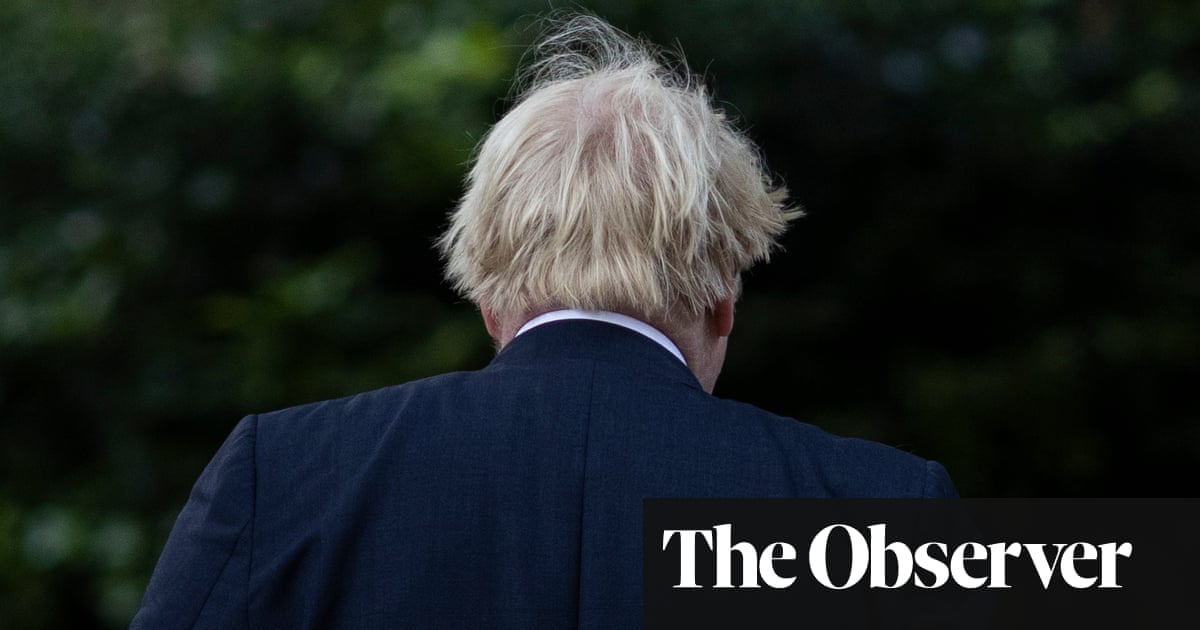
egotiations with the EU over a trade deal resume tomorrow, with insults and acrimony flying between the two sides. Today, Boris Johnson has warned that if no agreement is in place by an EU leaders summit on 15-16 October, he will walk away from the talks without a deal, describing this as a “good outcome” for the UK. There are even rumours that the government is preparing to ditch parts of the withdrawal agreement it signed with the EU last year.
This brinksmanship and bluster, designed to put pressure on the EU, should be taken with a pinch of salt. The real deadline for the talks has always been mid-November, so there’s still plenty of time to do a deal. More importantly, Johnson needs and wants one.
The latest flare-up is because of the lack of progress on three now well-publicised issues: the access EU fishermen will retain to UK waters; how to organise the overall relationship, police it and resolve disputes in the event they emerge; and, crucially, the government’s unwillingness to share its plans for subsidising UK industries once the transition period expires on 31 December.
All of the cautious optimism in Brussels that followed Johnson’s meeting with the European commission president, Ursula von der Leyen, in June has evaporated. The more frequent negotiating rounds, the fact they were face-to-face, and the multiple private dinners between the two lead negotiators, David Frost and Michel Barnier, have not translated into progress in the negotiating room.
According to multiple senior EU officials, Frost has not been given the political guidance he needs to strike the big compromises. This is not surprising. Not only is Johnson heavily distracted by Covid-19, but Dominic Cummings, Johnson’s most influential adviser, is driving a very hard line on state aid, insisting the government retains as much freedom as possible to subsidise hi-tech firms. This freedom is also seen by Johnson as central to his “levelling up” agenda, a challenge exacerbated by the coronavirus recession. The cabinet is also very divided on state aid, one reason why it has not reached a decision despite the building pressure of the EU negotiations.
Whether these developments are concerning largely depends on whether one believes the 15-16 October EU summit deadline can be pushed back. Despite Johnson’s statement today, it can be.
No one in Brussels expects any progress this week. The next time officials will then meet will be 28 September, two and a half weeks prior to the EU summit. That makes it highly unlikely a deal will be in place by then. Senior EU officials have therefore been discussing the idea of another summit, say towards the end of the month. Barnier also wants to debrief EU leaders on 24-25 September, when they plan to discuss Greek-Turkish tensions in the eastern Mediterranean, the situation in Belarus and relations with Russia, in the hope this could unblock talks. There is even chatter of another “high-level meeting” between Johnson and Von der Leyen in early October as well.
It’s therefore possible that EU leaders, more responsible and less reckless than Johnson’s operation, will attempt to inject more momentum into the talks and more space for them to succeed, working in tandem with Barnier. As one senior EU official says: “We will be the last ones to turn off the lights.” If there is progress, it’s highly unlikely Johnson will walk away.
This is because he needs a deal. After a poor performance on coronavirus and with a jobs crisis looming, he needs a success story: no deal would be portrayed by his opponents as a failure. It would lend itself to a rejuvenated Labour opposition’s main line of attack – the general charge of incompetence – which is a difficult label for any government to throw off.
As well as letting Labour’s new leader, Keir Starmer, back into the Brexit game, where he has had to tread carefully given his support for a referendum last year, no deal would also play into the hands of the Scottish National party ahead of crucial elections to the Scottish parliament next May. It would boost Nicola Sturgeon’s chances of winning an overall majority, and claiming a mandate for a second independence referendum. Ministers are increasingly nervous that a Scottish breakaway is on the cards (the cabinet was recently briefed that the latest opinion polls show 56% of Scots would vote for independence, and 44% to stay in the UK).
Business leaders are also lobbying MPs, warning that a double “Covid-19 and no deal” blow would be disastrous for jobs. This plays into the politics. Tory MPs representing the former Labour heartland seats in the North and Midlands are unnerved by surveys suggesting they would be among areas hit hardest by no deal. As one of them put it: “The message has been relayed to No 10. It needs to get it.”
These factors will push Johnson towards compromise by the real deadline, which is mid-November. This is because in order to implement the deal by 1 January, six to eight weeks will be needed to convert the political agreement into legal text. This text will then have to be “scrubbed” – reviewed by lawyers on both sides for accuracy, consistency and meaning – translated into the union’s 24 official languages and signed off by the European parliament.
But even mid-November does not leave the two sides much time. Unfortunately, until then Europe will remain trapped in a guessing game. Because, as one senior EU official tells me: “Not one political figure or official in Brussels or any EU capital can vouch for the real intentions of the government.”
• Mujtaba Rahman is managing director for Europe at Eurasia Group












